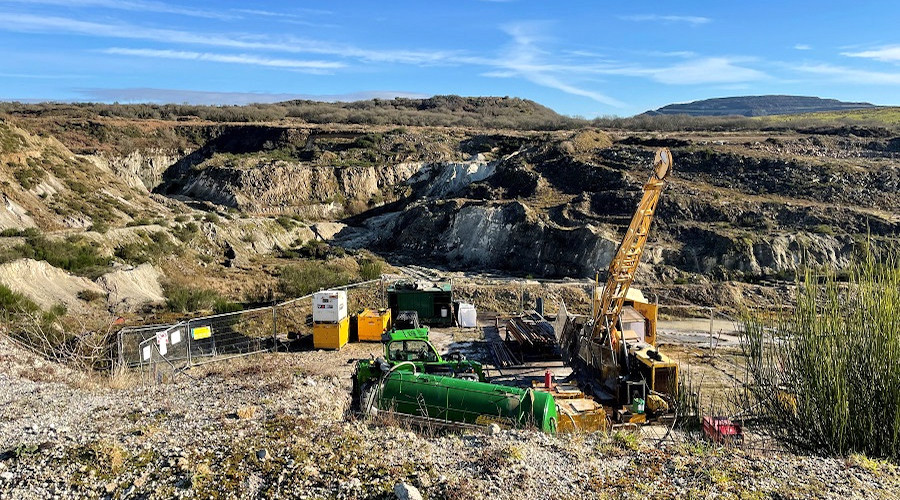
Cornish Lithium chief executive and founder, Jeremy Wrathall, said the drilling program should also help determine the best extraction method.
“In December, we announced that we would be accelerating the development of our Trelavour hard rock lithium project following the successful production of battery-grade lithium hydroxide from lithium mica samples obtained during our first drilling program at the project earlier in 2020,” Wrathall said. “We are now looking forward to this second drilling campaign and producing our maiden mineral resource from Trelavour.”
Drilling campaign is expected to contribute to first reportable mineral resource and assist in determining best extraction method.
Most of the world’s lithium is currently produced in huge brine evaporation ponds in South America or open pit mines in Australia. The metal is then shipped to China for processing into lithium chemicals for the manufacture of lithium-ion batteries.
Europe is not too far from commercially producing battery-quality lithium. A British consortium that includes Cornish Lithium, recently produced its first lithium carbonate locally.
“The development of lithium processing technologies at the WAI labs as part of the Li4UK project has been a huge stepping-stone,” Ben Simpson, technical director for mineral processing at the Wineral Processing Laboratory, said in January. “What has been achieved here puts the UK at the forefront of developments in the European battery industry.”
Cornish Lithium is simultaneously advancing a project to extract the battery metal in geothermal waters off the coast of Cornwall.
“Given the potential that has been established by this project to exploit lithium resources in Cornwall, it is possible that the UK could produce a significant percentage of its lithium demand domestically,” Wrathall has said.
Cornish Lithium is targeting four sites where it plans to potentially extract the battery metal using a low-impact and environmentally responsible process. Mining lithium from geothermal water allows using the same hot rock water to power up turbines, generating zero-carbon electricity and heat.
The £4 million ($5.4m) project will trial direct lithium extraction (DLE) technology, which removes dissolved lithium compounds from water without the need for brine ponds.
Cornwall also provides access to renewable energy from solar and wind, and established infrastructure such as rail, road and port facilities — which represent a considerable advantage over other European lithium projects.
Good timing
The company’s efforts fit the British government’s push to attract more investment into battery factories in order to protect the future of local car plants.
Figures released in early January by the Society of Motor Manufacturers and Traders, the local industry body, showed new car sales in the UK fell by almost 30% to 1.63 million in 2020, the toughest year for the market since 1992.
UK carmakers have three years to source local electric car batteries, following the Brexit free trade deal inked last year. Under the agreement, all European trade in cars and parts will continue to be free of tariffs or quotas after the Brexit transition period ended on December 31, as long as they contain enough content from either UK or EU factories.
Batteries will at first be allowed to have up to 70% of materials from countries outside the EU or the UK. From 2024 onwards, however, that requirement will tighten to 50%.




